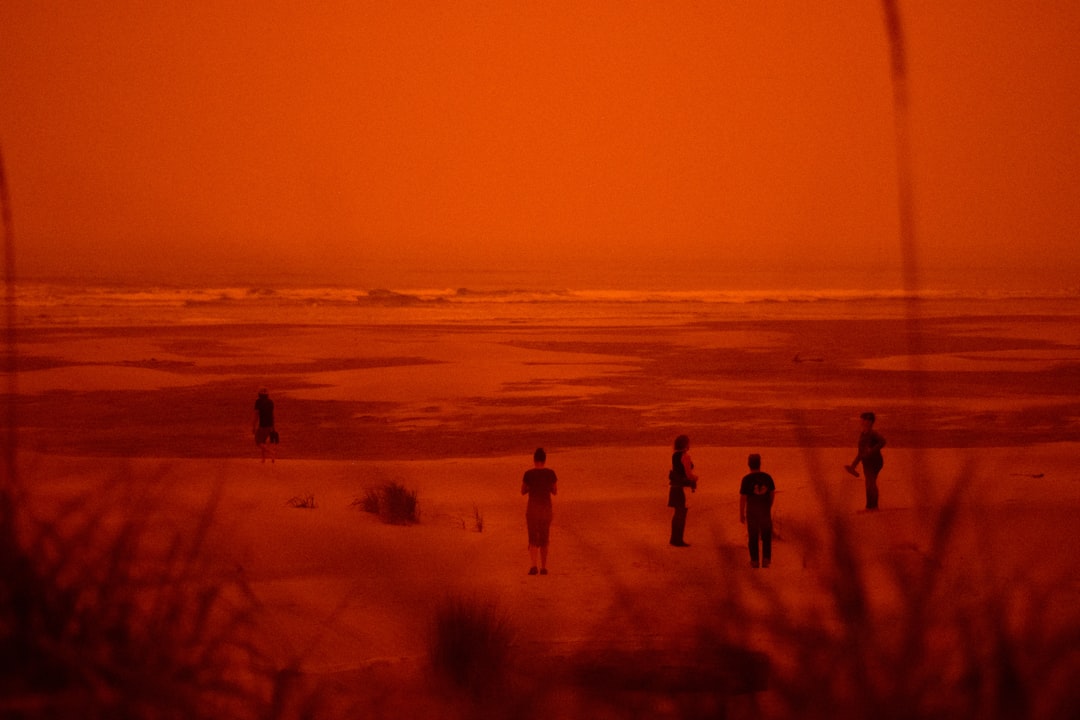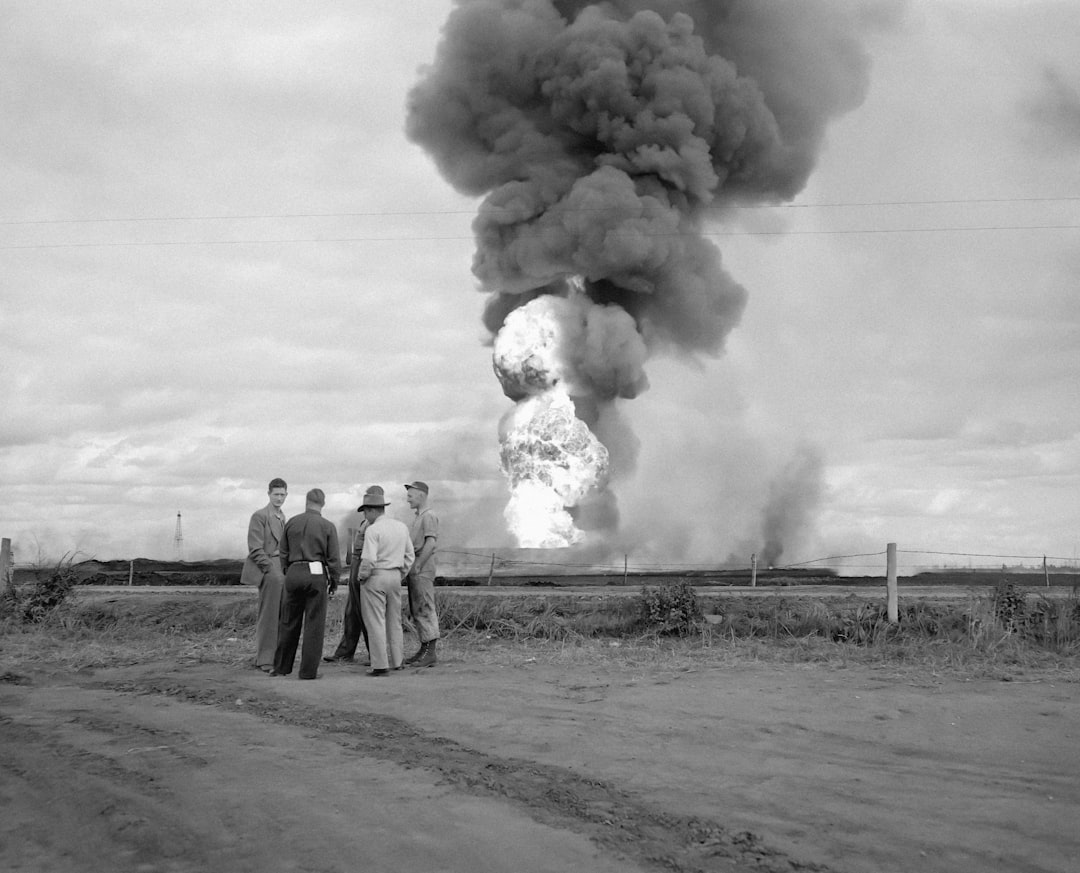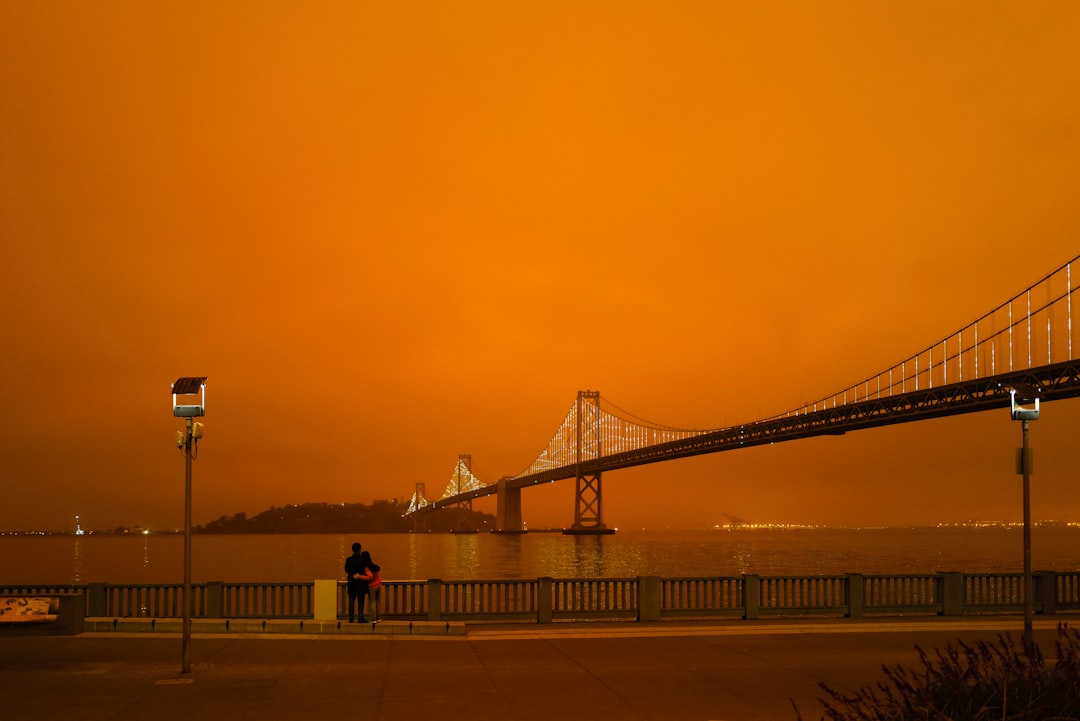Capitalism is the Root of the Climate Crisis
And it's killing us.
Tuesday night the reality of the climate crisis struck, again, as I walked out of the subway into a city that looked dramatically different than it had an hour before. Smoke clouded my view, obscuring the buildings around Central Park, and the air smelled as though I was standing near a bonfire. For the first time since Spring 2020 I took a long walk in a mask. Wednesday started slightly better, but as most of you probably saw the sky proceeded to grow yellow, then orange, blotting out the New York skyline. This is the first time wildfire smoke has covered NYC so severely.
The last time I felt the climate crisis so acutely was this past fall, as I drove through Montana. On each side of the road, for long stretches, rose beautiful mountains that I knew were there. But they were invisible, covered by smoke that limited our view so heavily I could have mistaken it for fog. Twenty years ago such total smoke coverage was rare in that part of the country, but now wildfire season is a yearly occurrence that blankets massive areas for weeks at a time. This is true for most of the Pacific Northwest, and much of the West Coast more broadly. Canada is, of course, also feeling the effects of horrible air quality and smokey skies. Around the world, millions and even billions are experiencing both the immediate dramatic effects of the climate crisis, from flooding to hurricanes to rampant fires, and the slow and steady pain of rising sea levels, drier climates, and less predictable weather.

A secondary effect of the drastic increase in climate disasters is, as we know, increasing media around these events. Yet, so often this coverage is failing us, failing life on Earth, failing to inform people about what will likely be one of, if not the most profound and disruptive paradigm shift of our lives. Some media, namely right-wing outlets, have simply opted for complete climate denial. Fox News ran a segment around the notion that the “radical left” is using the wildfires and the plumes of smoke covering chunks of the country as a “climate cudgel.” This level of absurdity is, on its face, laughable, but the number of people buying in is cause for alarm. Messaging from Fox and other conservative sources muddies the waters even for people who aren’t direct consumers of their malicious content. And muddy waters, in a country already enamored with conspiracy theories, has contributed to a range of outlandish ideas, from alien activity to climate activists setting hundreds of fires across Canada to make people take the climate crisis seriously. We won’t be indulging these ideas today.
But the general state of confusion that easily and rapidly proliferates around climate emergencies is worth noting. And while the mainstream response is thankfully more accurate than the claims of “antifa” arsonists roaming Canada, it often falls short of what’s really needed to meet this crucial moment. Most notably, even when prominent outlets report the basics of what’s occurring with the Canadian wildfires, or other climate-related events, they fail to make clear the direct line from the fossil fuels to the catastrophes hitting us more by the year. The reasons for this are clear. As The Lever recently reported, some media outlets are explicitly connected to, and financed by, the fossil fuel industry. And even many of those outlets which are not as directly tied giant oil and gas companies are still caught up in the structural issues that guide, or afflict, nearly every for-profit enterprise under capitalism.
For-profit media, fossil fuel corporations, and nearly every company under capitalism is affected by systemic problems that are detrimental to us all. The most universal is the need to extract maximum profits. Of course profit motive has been a fundamental driver of the capitalist economic system since its inception, but under what some call shareholder capitalism this motive has become an imperative. What I mean is that although the appeal of capitalism, to those with money to invest, has always been the ability to generate profit, it has become a do-or-die situation for CEOs. If the company you run isn’t generating enough money for shareholders in this era you are quite likely to be ousted, and the benchmarks you need to meet to keep your job might be determined by quite short terms goals. Which brings us to our second problem.
The second issue afflicting corporations is short-term profit motive. Again, profit has always been central, but the timetable by which success is determined, and in which growth and profits are demanded, has shrunk dramatically—to quarterly reviews. Every three months, a new report is sent out. And careers are made, or lost, on these extremely short-sighted assessments. This has exacerbated multiple underlying problems inherent to capitalism, and led to a disastrous relationship between corporations across the globe and the climate crisis, in particular.
One industry again rises to the surface in terms of who we must look at as the villain of this story: the fossil fuel industry. With the climate crisis worsening, and becoming more apparent by the day, oil and gas giants are posting record profits. As Reuters wrote earlier this year, “Big Oil doubles profits in blockbuster 2022.” Even the most stunning corporate successes rarely look that good. There are multiple reasons for these staggering profits, hundreds of billions of dollars in total for the industry this past year, but they come down to exploiting consumers and continuing to pump out the fossil fuels that are doing incalculable harm to life on Earth. One of the clearest examples of how these massive corporations are consciously choosing greenhouse gasses over sustainability comes from recent bombshell news from Shell. The company has recently chosen to scrap several projects, including in offshore wind, hydrogen and biofuels, due to projections of weak profits in these areas. At the same time, Shell reported record profits of $40 billion last year, mostly from their oil and gas business.

While this is a conscious choice from the leadership of Shell, a choice of course paralleled by other executives across the industry, the very nature of capitalism makes it extremely unlikely that these companies will ever willingly go in another direction with anything approaching the speed necessary to mitigate climate disaster. Now you might reasonably say, “We know not to trust fossil fuel companies, but that’s where the government comes in.” And while there has indeed been a push from the Biden administration for more sustainable energy funding, to the tune of billions, the numbers still pale in comparison to the might of the fossil fuel industry. Even more significantly, the increase in clean energy funding hasn’t been matched with a reduction in fossil fuels. Data from the Bureau of Land Management shows that Biden has unfortunately granted more oil and gas drilling permits than Trump in his first 2 years in office.
Overall, U.S. oil production is expected to set a new record in 2023. This harrowing statistic isn’t down to just Biden, or Congress, or the fossil fuel industry, but rather the nexus of all three. Corporations broadly have far too much power in our system, and the oil and gas giants are no exception. In fact, as they rake in record profits it in many ways becomes harder to contain their power, even though the push-back from environmental groups and organizers has grown and public sentiment has shifted more substantially against the industry. But the recent debt ceiling package provides an illustrative example of how oil and gas companies still influence our politics to devastating effect. More Perfect Union recently ran an expose about how a provision green lighting, almost instantaneously, the Mountain Valley Pipeline was snuck into the deal. The project, which still faces fierce opposition, would transport fracked gas more than 300 miles through West Virginia and Virginia. And the owners of the pipeline gave millions of dollars to politicians in both parties—especially Chuck Schumer and Kevin McCarthy who each received over $300,000.
So here we run up against another problematic aspect of capitalism, particularly as it relates to the fossil fuel industry and the climate crisis. Namely, when an industry or company or person becomes wealthy and powerful that power is not just limited to the economic sector, it also invades and shapes the political arena, and the more money the more power. As I wrote earlier this week, this problem has gotten worse since the Supreme Court’s Citizen’s United ruling which declared corporations to be people and ushered in an era of unlimited political spending by the super-rich and their companies, but the problem existed beforehand as well. Money is power, and controlling that power is very difficult. Before unlimited political spending was legal, for instance, wealthy people simply rigged elections illegally. And got away with it.

Now it is easier than ever for fossil fuel companies, as they rake in record profits, to influence our politics. They also influence our media, academia, and a range of other arenas. A relatively small portion of their overwhelming profits are used to ensure that more and more profit continues to flow. This is how capitalism works, and why it must be overcome if we are to stop the climate crisis and build a truly sustainable relationship with the planet. Trusting this system to self-correct, when we know the immense wealth to be hoarded by allowing things to continue getting worse, is simply unrealistic. It is accepted, in mainstream economics, that change is almost always an opportunity for profit. Even if many people and businesses suffer in times of massive change, there is always an opportunity for new revenue streams as well. And those who control the existing physical infrastructure and power structure are most easily able to capitalize on a given disruption. As Naomi Klein has discussed in her work, this phenomenon is in fact even worse in the wake of a disaster. After a crisis, private enterprise moves in and takes government money, then often sets up shoddy replacements for what used to be government supplied services. And this is just one way wealth and power profits from disaster. There are always new goods to sell, new businesses to establish, and new government funds to siphon off. Just this past week in New York you could see stores putting up signs reading “out of masks” or “out of air filters,” for instance. And those are just the small potatoes.
The world needs a system without profit, which is the only way we can have a society that values life. That is to say we need to build a system where no one stands to gain for exploiting the labor of another, and where no one can accumulate so much wealth, and therefore power, that they have the ability to uphold a state of affairs that is killing us. No industry should have such excess money that they can pay politicians, distort media, and convince people to support their own destruction. And so we must move beyond capitalism. It may seem inconceivable, and it will certainly be hard, but this system based around profit and exploitation is at the root of our orange skies, at the root of the trees burning at nearly 20x the normal rate across Canada, and at the root of why so little is being done to expeditiously change this dystopian reality. As Ursula K. Le Guin famously said, “We live in capitalism. Its power seems inescapable. So did the divine right of kings. Any human power can be resisted and changed by human beings.” It can be changed, and we must be the ones to change it. For ourselves, for life on Earth, and for future generations.
I just want to add briefly that if you find this work worthwhile I think my whole recent series on the myths that uphold capitalism might interest you. Here is the whole series thus far, five short essays, all free in one place.
And more to come soon! I hope everyone affected by these wildfires and other climate catastrophes is holding up okay. It seems like it might be a longer summer of bad air quality for a lot of us, so I pray you’re able to mask, purify your air, and engage in radical organizing that gets to the root of this crisis.


While I agree with you overall, I think it's important to avoid rhetoric that suggests that the problem we need to solve is "shareholder" capitalism or "crony" capitalism rather than just capitalism qua capitalism. I know you acknowledge and believe this, but I have read enough Vox articles suggesting that the problem is The Bad Kind of Capitalism to know that people will take those ideas and run with them even if they originally come packaged with a disclaimer.
Great read